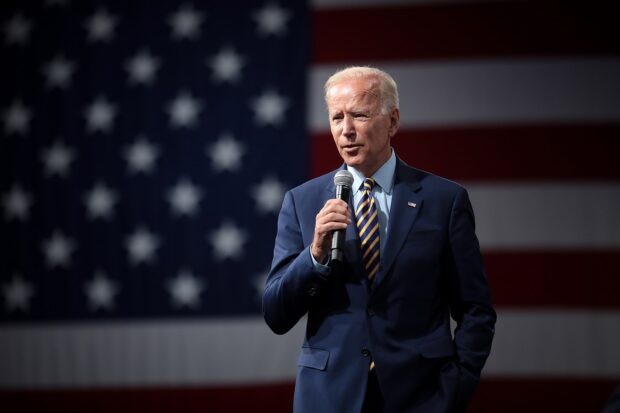
The moment that former Vice President Joe Biden won enough electoral votes to become President-Elect Joe Biden, experts began to forecast the implications of a Biden presidency on public education.
- “Joe Biden’s Election as President Tees up Massive Shifts for K-12 Policy,” Education Week wrote.
- “With DeVos out, Biden plans series of reversals on education,” the Washington Post said.
So what could the next four years mean for Idaho education?
Predicting what will happen is like “looking at the tea leaves,” said Terry Ryan, who runs Idaho charter school incubator Bluum.
Biden’s ultimate impact on education is sure to be shaped by the dynamics in the U.S. Senate, which could remain under Republican control. But the president-elect’s education plans, national reporting and interviews with his top policy advisers shed some light on what the future might hold.
The forecast looks like public schools could get more money, but face more regulation.
A pivot from school choice to ‘neighborhood public schools’
School choice has been a tenet of Trump-era education policies under Education Secretary Betsy DeVos, who championed cuts to federal education spending and vouchers for students to attend private schools. Neither of those platforms picked up much momentum during her tenure.
In a discussion with the Education Writers Association, policy director Stef Feldman said Biden’s focus is “doing everything we can to help traditional, neighborhood public schools, where most students go.”
Biden has promised to triple funding for Title I schools that serve low-income youth, double the number of counselors and social workers in public schools, and make sure schools have access to disaster relief and emergency assistance funds under FEMA to deal with the coronavirus pandemic.
While a Biden administration seems more friendly to bolstering education budgets, Feldman indicated it might rethink which schools actually receive funding.
Biden plans to ban federal funding to for-profit charter schools, Feldman said. And she hinted that the Biden administration is likely to increase scrutiny of underperforming charter schools, but didn’t give specifics on how the Department of Education would evaluate school performance. (Skip to minute 23 in the video above.)
“Biden will make sure that we stop funding for charter schools that don’t provide results,” Feldman said. “We shouldn’t be wasting the scarce resources that our public schools need so badly.”
It’s typical of a Democratic administration to assign more regulation to schools, Ryan said. But there is a general concern in charter circles that attaching more strings to federal funding will come at the expense of the freedom and flexibility that distinguish charters from traditional K-12 schools.
“There’s uncertainty, there’s some fear, there’s also some hope that overall maybe there will be more money for K-12 education and that could be a helpful thing,” Ryan said. “It’s a mixed bag.”
A return to Obama-era initiatives
Some of DeVos’ most significant impacts on education involved rewriting and dismantling Obama-era policies around everything from protections for transgender students to sexual harassment and assault in schools, according to a Chalkbeat report on her legacy.
There’s a good chance those policies return under Biden.
Feldman told EWA that Biden plans to beef up the Department of Education’s Civil Rights office, downsized under DeVos. Biden is also likely to reinstate guidance to reduce racial disparities in school discipline, which DeVos nixed, and to revisit controversial Title IX rules that DeVos instituted this summer. The rule change shook up the process for investigating sexual assault cases at both the college and K-12 levels. Because DeVos went through the federal rule-making process, Chalkbeat predicts that walking back the changes would take the Biden administration some time.
Expanding pre-K access
Biden wants to “make sure every 3- and 4-year-old can go to free pre-kindergarten,” Feldman told EWA.
That would be a major change in Idaho, one of only four states that doesn’t fund pre-K programs.
Beth Oppenheimer, executive director of the Idaho Association for the Education of Young Children, says Idaho needs a more robust pre-K infrastructure in order to take advantage of federal funds.
States that fund pre-K have a jump start on harnessing federal dollars to expand statewide programs, Oppenheimer said. Idaho’s Legislature has not allowed the State Department of Education to spend money on pre-K programs.
Her organization has taken a local, ground-up approach.
Idaho AEYC has developed a framework for local communities to build early childhood programs using public-private partnerships. Sixteen communities have created partnerships, or are developing them, and the organization is using a $1 million W.K. Kellogg Foundation grant to expand that model.
“If Idaho can get to a place where we have better systems for early childhood education, I think that will make a huge difference in whatever happens or comes down from the federal level,” Oppenheimer said. “We’re hopeful there will be funding for early childhood education…at the same time, Idaho has some work to do in order to have a system to accept those dollars if they come our way.”
Disclosure: Bluum and Idaho Education News are both funded through grants from the J.A. and Kathryn Albertson Family Foundation.
